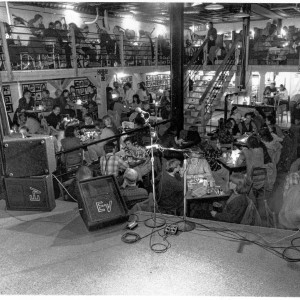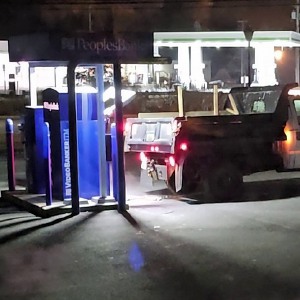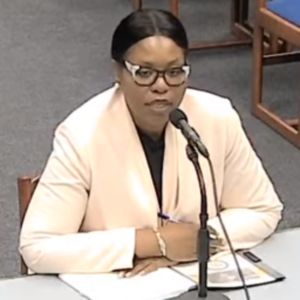Consumer Corner with Anita Wilson: Some tips when considering solar at your home?
| Published: 06-14-2023 2:54 PM |
You may have seen advertisements about going solar or maybe you’ve seen fields of solar panels popping up along the highway. I have some tips if you are considering solar.
Before you speak to any company, determine your electricity usage. This information can help you decide if solar panels are right for you. Check your electric bill to see how much electricity you use and how much it costs per kilowatt hour. Look for the supply charge on your bill, which shows how many kilowatt hours (kWh) you have used multiplied by the charge per kilowatt hour. Remember that you will still have to pay other fees such as a delivery charge to your electric utility.
Production from solar panels depends on the weather, the time of year, which direction your roof faces, and how shaded your property is. This means your energy production can vary, and you may still have to buy electricity from your utility. You can get an estimate of how much energy a system at your home might produce per year using the calculator tool from the National Renewable Energy Laboratory at https://pvwatts.nrel.gov.
One of the components of the solar electric systems is the meter. A net meter spins backwards when the system in producing electricity and forward when you are using electricity supplied by the electric company. If your solar system produces more electricity than you use, you can sell it back to the utility and receive a credit on your bill. If it produces less, you will have to pay for electricity from the electric company. Contact your electric company to find out if there are any restrictions on the size of solar systems in your area and if your ability to net meter could be affected.
Consider how long you plan on staying in your home. Many solar systems are designed to last for 20 years or more. If you think you might be moving during that time, find out how installing a solar system will affect selling your home. Ask the company if the contract will transfer to a new owner.
Check the condition of your roof. Does it need to be repaired or replaced before solar panels are installed? Since the panels are intended to stay in place for an extended period, if your roof needs to be replaced during that time, the panels need to be removed adding to the cost of the repairs.
Understand your ownership options. Will you purchase the system, or would a third-party company own the system? If you own your system, you pay for the equipment and installation, but you receive the tax benefits and production-based incentives. If a third-party company owns the system, your upfront costs are little or none, but you will not receive the tax benefits or incentives.
Community shared solar is an option for those who cannot or do not want to install panels on their property. The panels are located off-site in a large solar system. Consumers pay a monthly fee to subscribe. In return for paying the fee, they receive net metering credits on their utility bills for the energy the system produces.
Article continues after...
Yesterday's Most Read Articles
 The Iron Horse rides again: The storied Northampton club will reopen at last, May 15
The Iron Horse rides again: The storied Northampton club will reopen at last, May 15
 Homeless camp in Northampton ordered to disperse
Homeless camp in Northampton ordered to disperse
 Authorities ID victim in Greenfield slaying
Authorities ID victim in Greenfield slaying
 $100,000 theft: Granby Police seek help in ID’ing 3 who used dump truck to steal cash from ATM
$100,000 theft: Granby Police seek help in ID’ing 3 who used dump truck to steal cash from ATM
 UMass football: Spring Game closes one chapter for Minutemen, 2024 season fast approaching
UMass football: Spring Game closes one chapter for Minutemen, 2024 season fast approaching
 Final pick for Amherst regional superintendent, from Virgin Islands, aims to ‘lead with love’
Final pick for Amherst regional superintendent, from Virgin Islands, aims to ‘lead with love’
If purchasing the solar system, determine how you will pay for it. Research the state and federal tax incentives for installing the system as well as any incentives offered for solar production here: https://www.mass.gov/energy-rebates-incentives.
With third-party ownership, the consumer has two options — a lease or a solar power purchase agreement (PPA). With a solar lease, the consumer pays a predetermined amount per month to the solar company and receives any electricity generated at no additional cost. With a PPA, the consumer agrees to purchase electricity generated by the system for an agreed-upon price per kilowatt hour. Consumers with a lease or PPA generally do not receive tax benefits or production incentives.
As with any project at your home, you’ll want to do your research. Check out the company — read reviews from other homeowners, look for complaints, and check if the installer is licensed as a home improvement contractor or construction supervisor in Massachusetts at https://www.mass.gov/info-details/home-improvement-contractor-hic-program. Make sure the contractor provides proof of liability and workers compensation insurance.
Get bids from at least three companies. The bids should include the expected performance of the equipment and size of the panels; the full cost of installation, including any fees for building or electrical permits; whether it’s guaranteed to produce a certain amount of energy; and what warranties apply to the equipment and the installation.
If you are comparing solar leases to PPAs, I suggest you look for installation and monthly fees; the minimum power a system will produce, and what happens if the system doesn’t produce that amount; the length of the contract; the warranties and repairs included, and how long they last; who benefits from tax credits and production-based incentives; what happens if you need to repair your roof after the system is installed; whether there is an option to buy the system later; what happens if you sell your home; and what happens at the end of the contract term.
Once you decide on a company, look over the contract carefully. It should contain the installation timeline, the itemized costs and progress payment timeline, an estimate of annual system production, a process for dispute resolution, and warranties on equipment and workmanship. The contract should also include a customer disclosure form for the Massachusetts SMART program, which outlines the names of the customer and installer, who owns the system, technical information about the system, and a check list of who is responsible for getting permits, approvals, inspections, and incentives related to the installation.
For more information about solar, visit the Massachusetts Clean Energy Center; the Massachusetts Department of Energy Resources (www.mass.gov/doer); the U.S. Department of Energy (energy.gov/eere); or the NWDA Consumer Protection Unit (NortwesternDA.org/consumer-protection-unit), or by calling our Greenfield office at 413-774-3186 or Northampton office at 413-584-9225
Anita Wilson is director of the Northwestern District Attorney’s Office Consumer Protection Unit, which is a Local Consumer Program working in cooperation with the Office of the Massachusetts Attorney General.

 Authorities ID victim in Greenfield slaying
Authorities ID victim in Greenfield slaying  Federal probe targets UMass response to anti-Arab incidents
Federal probe targets UMass response to anti-Arab incidents Locking up carbon for good: Easthampton inventor’s CO2 removal system turns biomass into biochar
Locking up carbon for good: Easthampton inventor’s CO2 removal system turns biomass into biochar William Strickland, a longtime civil rights activist, scholar and friend of Malcolm X, has died
William Strickland, a longtime civil rights activist, scholar and friend of Malcolm X, has died
